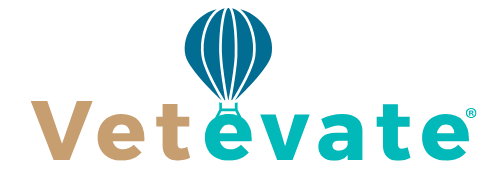A veterinary job board must first and foremost provide a diverse and comprehensive range of job listings specifically tailored to the veterinary profession. Unlike general job boards, which offer broad-spectrum employment opportunities, a specialized veterinary job board should understand the nuances of roles within animal health care and cater exclusively to that audience. This includes positions such as veterinarians, veterinary technicians, veterinary assistants, practice managers, animal behaviorists, laboratory animal caretakers, and even veterinary sales and marketing professionals. Whether candidates are seeking work in small animal clinics, equine practices, mixed animal hospitals, or exotic animal care, the platform must reflect the full spectrum of the industry.
The listings should span a variety of settings including private clinics, nonprofit animal shelters, university teaching hospitals, mobile practices, research facilities, government agencies, and pharmaceutical companies. By curating these listings with precision and relevancy, the job board becomes an essential tool for job seekers who wish to explore roles that align with their specific training and career goals. Moreover, geographic filtering is equally important. Some professionals may want to stay local, while others are willing to relocate for the right opportunity. A quality job board should allow users to search and filter by location, type of practice, and specialization, ensuring that each job seeker has access to a tailored list of opportunities.
Candidate Support and Career Development Resources
Beyond simply displaying job postings, a veterinary job board should function as a holistic career development platform, offering meaningful support to candidates at every stage of their professional journey. For students and recent graduates, the board should offer guidance on how to enter the profession, prepare for licensing exams, build a resume, and find internships or externships. For mid-career professionals, it should provide tools and resources that help them pivot to new specialties, transition into leadership roles, or find work-life balance through locum tenens or part-time work. For seasoned veterinarians and retirees looking to mentor or consult, the job board should offer opportunities for freelance and advisory roles.
To support this development, the job board should host a library of articles, webinars, and videos on key topics like interview tips, salary negotiation, workplace wellbeing, and continuing education. Partnering with veterinary associations or licensing boards to offer CE course directories and credentialing information would also make the platform a more powerful tool for long-term professional growth. Career coaching services, resume reviews, and mock interview support can add tremendous value to users who may be changing jobs for the first time in years or looking to break into a more competitive area of the field.
A veterinary job board that takes a proactive role in career development becomes more than a place to find employment—it becomes a trusted partner in navigating the complex, and often emotionally demanding, world of animal care.
Employer Services and Practice Support
While supporting job seekers is vital, a truly effective veterinary job board must also offer robust services for employers. Veterinary practices and animal health organizations face their own set of challenges, including high turnover rates, a shortage of qualified professionals, and the rising costs of recruitment. A veterinary job board that helps employers streamline their hiring process while accessing a pool of pre-qualified candidates becomes indispensable to the industry.
Employers should be able to create detailed and attractive job postings that showcase their practice’s values, culture, benefits, and opportunities for advancement. The platform should support video introductions, virtual tour uploads, or employee testimonials that help candidates get a true sense of what it would be like to work at the practice. Additionally, the board should offer applicant tracking tools, analytics dashboards, and communication portals that help streamline the recruiting process from start to finish.
For even greater impact, the board could offer recruitment marketing services, including sponsored listings, featured employer status, and social media promotion. Employer branding is critical in the veterinary industry, where compassionate work environments and supportive leadership are major draws for candidates who want to avoid burnout. Moreover, a dedicated section for hiring locum tenens or relief veterinarians is a must, allowing practices to maintain quality care during staff absences or seasonal demand spikes. In addition, consulting services to help smaller practices write compelling job descriptions, structure compensation packages, and navigate legal compliance in hiring would make the job board a full-service recruitment partner.
Industry Integration and Community Building
In a field as interconnected and emotionally charged as veterinary medicine, community is everything. A veterinary job board should not operate in isolation but rather integrate itself into the broader professional ecosystem of the veterinary world. This means building relationships with veterinary schools, alumni associations, licensing boards, veterinary technician programs, industry trade shows, and professional associations. Integration with these groups allows the board to tap into trusted networks, distribute relevant jobs more effectively, and enhance its credibility among users.
The job board should also foster a sense of community through forums, peer-to-peer networking spaces, and professional groups. Veterinary professionals often work in stressful environments and may struggle with issues like compassion fatigue, imposter syndrome, or burnout. Creating a space where they can connect, share experiences, ask questions, or support one another not only increases user engagement but contributes to a healthier profession overall.
Another critical area of integration is with technology platforms already in use by candidates and employers. The job board should offer integration with LinkedIn, resume parsers, continuing education trackers, and scheduling tools. Compatibility with mobile devices is no longer optional; veterinary professionals often work long hours, and the ability to search or apply for jobs on the go is essential.
Finally, keeping users informed about trends in the job market, new specialties emerging within veterinary medicine, legislative changes affecting licensing, and innovations in animal care helps establish the job board as a vital source of industry news and analysis. Whether through a blog, newsletter, or podcast series, the job board becomes more than a utility—it becomes a central hub of knowledge, support, and connection within the veterinary community.




